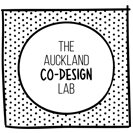Practice Foundations 2022
Practice Foundations is a monthly public sector community of practice event hosted online by the Auckland Co-design Lab in collaboration. We have a shared interest in promoting and prioritising ethical whānau-centred and led design and innovation practice and the active involvement of community, families, whānau, aiga and rangatahi in wellbeing, design, decision-making and leadership. Write to aucklandcodesignlab@aklc.govt.nz to be added to the mailing list, or ask to be removed.
Hautū Waka
Our work is a deeply navigational practice, navigating the complexity of systems to build inter-generational equity and well-being. Much of our work is discovering the tools we need to navigate in indigenous practice, science, design…whatever works for what we need. Hautū Waka is a navigational framework rooted in Mātauranga Māori and can be used as a tool to help us navigate complexity. Roimata Taniwha-Pao’o and Ayla Hoeta have been working on the Hautū Waka, guided by Matua Rereata Makiha.
What’s the mauri of the system?
If I am asking for the system to change, what change am I asking of *myself*? Since a colonial system cannot naturally produce indigenous outcomes, how do we help the systems we work in to indigenise? In this Practice Foundations session, Dickie Humphries will lead us through some of these questions, based on his own experience of responding to these same questions in his practice. He will introduce concepts and tools from Moana Nui, and reflect on practical and real-life lessons from his work in indigenising systems.
Before (and after) Co-design
When we think of co-design, we often land directly in the doing of the co-design with communities. However when communities think of co-design, they are often thinking also of what comes before ( co-governance, for example) and what comes after - such as co-evaluation). Join us as we explore this with Debbie Goodwin, who has recently completed her PhD in Kaupapa Māori Evaluation in co-design settings. Basing in a te ao Māori worldview, Debbie will take us through what it means to adequately plan for co-design, and introduce some tools and examples from te ao Māori that we can use to better co-design.
Shifting the Food System
The Healthy Families South Auckland team is working with many of Auckland Council’s services to help local government promote health and wellbeing. One project has involved helping Auckland Council ECEs and after-school programmes to provide children with better access to good food. In this Practice Foundations session, Winnie Hauraki, Manager of Healthy Families South Auckland, will share how she and her team worked to make these shifts in the system, the approaches they took, and the challenges they faced.
Whānau-led design – what does it actually take?
He Whānau Whānui o Papakura (HWWoP) is a group of whānau residing or connected to Papakura, leading an innovation process focused on thriving futures for tamariki. Supported by Papakura Marae and The Southern Initiative (Auckland Council), HWWoP has been working with local agency leaders to design and test local prototypes that are strengths-based, values-led alternatives to current service and programmes models.
Te Tokotoru
Te Tokotoru is a systems approach to wellbeing, developed alongside whānau and rangatahi. It provides a different starting point for designing and investing in equity and intergenerational wellbeing. It is being used in different government settings like Te Aorerekura to enable a shift towards strengthening and healing. This session will share some of the origins of Te Tokotoru and the principles it represents, what we are learning about the kinds of conversations and shifts in thinking it can help support, and provide opportunities to explore what this means in your own context.
Whakapapa-led design
Karl Wixon specialises in envisioning, codesigning and achieving positive futures through thought leadership, strategy, change, design, growth and innovation. He brings a marriage of commercial, creative and cultural acumen to all he does and is frequently called on as a skilled facilitator to weave together complex collaborations spanning cultures, sectors, entities and interests to develop shared visions, find direction, and codesign solutions. Karl has led pioneering strategic and transformative projects across a wide range of sectors spanning design to cultural heritage, health, housing, education, justice, language revitalisation, tourism, fisheries, primary sector and economic development, both in New Zealand and offshore, including contracts in Canada with the Treaty Relations Commission and for development of regional economic strategy for Northern Manitoba in through a highly collaborative codesign process working with First Nations, Industry, Communities and Provincial Government.
